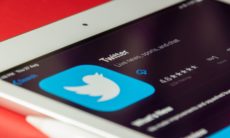This week’s collection reflects on the importance of recognizing and attending to a key aspect of self-care: our mental health. This seems obvious, important and necessary. And yet, even in the context of the evolving pandemic and the often overwhelming media coverage re: self-care, the role of and need for sustained mental health care can get drowned out.
Clients and colleagues continue to struggle with unrealistic demands, murky boundaries and depleted energy in their professional and personal lives. Uncertainty about return to work approaches/models and office opening delays has only heightened (appropriately) folks’ sensitivities and unease about the vagaries of future professional life. It can be exhausting and debilitating.
This week’s reading and listening recommendations reflect these themes, while providing pragmatic approaches, mental models and other tools to navigate the great grey areas that we still find ourselves in.
By no means should these be construed as a panacea or a one-size fits all. Adequate, timely and appropriate mental health care services, provided by professionals, are and will continue to be vital on the continuum of effective self-care. I do not want to minimize the importance of mental health care and the need to seek it out when necessary.
As always, happy reading and listening!
Articles
Axios: Mental health is the next big workplace issue. “As workforces transition to remote or hybrid, it’ll be even more essential for managers to check in on employees’ mental health.”
Psychology Today: A Sigh of Relief. “Worry is driven by mood, not logic. Anxiety holds your deepest yearnings. And you can subdue it for good. Three experts turn everything you know about anxiety inside out.”
Big Think: Neuroplasticity: how to use anxiety to improve your life. “Anxiety can be good or bad. It turns out that it’s really up to you.”
Harvard Business Review: To Lead Better Under Stress, Understand Your Three Selves. “Influenced by neuroscience, trauma-informed care, and attachment theory, we began to look more deeply at how human beings react to different levels of stress in our lives. Our developing roadmap is grounded in the premise that none of us operates from a single stable self. Instead, we unconsciously move between three primary selves — the child self, the defender, and the adult self — which vie for attention and control, depending on the demands we’re facing.”
Harvard Business Review: Leaders, Don’t Be Afraid to Talk About Your Fears and Anxieties. “…The most effective leaders are those who don’t push those emotions under the rug, but who instead openly and honestly acknowledge the challenges they face — and invite their employees to do the same.”
Harvard Business Review: Why You Need to Protect Your Sense of Wonder — Especially Now. “At its core, awe has an element of vastness that makes us feel small; this tends to decrease our mental chatter and worries and helps us think about ideas, issues, and people outside of ourselves, improving creativity and collaboration as well as energy.”
Podcasts
The Ezra Klein Show: That Anxiety You’re Feeling? It’s a Habit You Can Unlearn. “So, what is anxiety? How do we learn it as a behavior? And more to the point, how do we unlearn it?”
WorkLife with Adam Grant: Your Insecurities Aren’t What You Think They Are. “…Adam shares three steps you can take to harness your own self-doubt as a fuel for success, and why we stand to gain more from embracing our insecurities rather than hiding from them.”
This American Life: Stuck in the middle. “People caught in limbo, using ingenuity and guile to try to get themselves out.”
Blog Posts
Seth’s Blog: Solving for stress. “The solution to stress isn’t reassurance. It’s accurately understanding the world as it is, and making choices about what we do and how we do it. But far more than that, we relieve stress by making choices about the stories we tell ourselves.”
Ryan Holiday’s Blog: Meditations on strategy and life. “That’s going to mean getting comfortable with saying “No.” It’s going to be mean cutting fat from your life, maybe even hurting some feelings. But that’s OK. You’ll soon realize: When you say no to something, you’re saying yes to something else. And conversely, when you think you’re saying yes to one thing, you have to understand all the things you’re saying no to in the same breath. So you might make some people upset by saying no, but you’ll make other people a lot happier too.”
Arts, Music, Culture & Humor Corner
Thrillist: Disappear into the Desert for a Night at the ‘Invisible House.’ “The massive Airbnb is actually semi-inspired by Andy Warhol.”
The New Yorker: Labor of Love Dept. On Air with the Greatest Radio Station in the World. “WPKN-FM—on which you can hear a Stevie Wonder song performed by an all-women jazz septet or twenty minutes of Tuvan throat singing—moves to a new location in downtown Bridgeport, Connecticut.”
The New Yorker: Cultural Comment. The College-Admissions Crucible. “When did we all start believing that this process was a test of a teen-ager’s character?”
The New Yorker: Daily Shouts. “My Husband, I Vow to Honor You Always—Unless We’re Playing Scrabble, in Which Case I’ll Destroy Your Ass.”
Reflections
“The largest part of what we call ‘personality’ is determined by how we’ve opted to defend ourselves against anxiety and sadness.”– Alain de Botton
“A child can teach an adult three things: to be happy for no reason, to always be busy with something, and to know how to demand with all his might that which he desires.”— Paulo Coelho in The Fifth Mountain
This article was originally published here (link to https://www.kevinjordan.coach/blog/2021/10/5/great-leadership-how-the-best-leaders-embrace-and-role-model-self-care)








